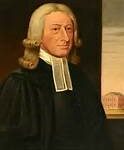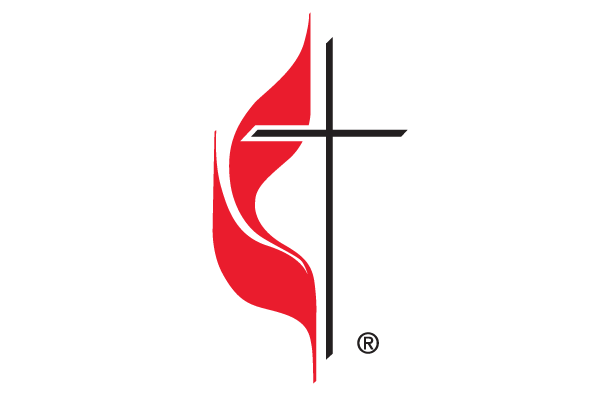A Reconciling Congregation
A reconciling congregation has taken steps to talk and discuss the following Foundational Statement. Lynden United Methodist Church became a reconciling congregation in April 2024.
“We celebrate God’s gift of diversity and value the wholeness made possible in community equally shared and shepherded by all. We welcome and affirm people of every gender identity, gender expression, and sexual orientation, who are also of every age, race, ethnicity, physical and mental ability, level of education, and family structure, and of every economic, immigration, marital, and social status, and so much more. We acknowledge that we live in a world of profound social, economic, and political inequities. As followers of Jesus, we commit ourselves to the pursuit of justice and pledge to stand in solidarity with all who are marginalized and oppressed.”
Reconciling ministries are required to affirm this foundational statement by a vote of at least 75%. The Lynden United Methodist Church has proudly affirmed this statement by a 93% vote.
A Brief History of the Methodist Church

The Methodist branch of Protestant religion traces its roots back to 1739 where it developed in England as a result of the teachings of John Wesley. While studying at Oxford, Wesley, his brother Charles, and several other students formed a group devoted to study, prayer and helping the underprivileged. They were labeled “Methodist” by their fellow students because of the way they used “rule” and “method” to go about their religious affairs.
The beginning of Methodism as a popular movement began in 1738, when both of the Wesley brothers, influenced by contact with the Moravians, undertook evangelistic preaching with an emphasis on conversion and holiness. Though both Wesley brothers were ordained ministers of the Church of England, they were barred from speaking in most of its pulpits because of their evangelistic methods. They preached in homes, farm houses, barns, open fields, and wherever they found an audience.
Wesley did not set out to create a new church, but instead began several small faith-restoration groups within the Anglican church called the “United Societies.” Soon however, Methodism spread and eventually became its own separate religion when the first conference was held in 1744.
George Whitefield (1714-1770) was a minister in the Church of England and also one of the leaders of the Methodist movement. Some believe that he more than John Wesley is the founder of Methodism. He is famous for his part in the Great Awakening movement in America. As a follower of John Calvin, Whitefield parted ways with Wesley over the doctrine of predestination.
Several divisions and schisms occurred throughout Methodism’s American history. In 1939, the three branches of American Methodism (the Methodist Protestant Church, the Methodist Episcopal Church, and the Methodist Episcopal Church, South) came to an agreement to reunite under the name “The Methodist Church.” This 7.7 million member church prospered on its own for the next twenty-nine years, as did the newly reunited Evangelical United Brethren Church. In 1968, bishops of the two churches took the necessary steps to combine their churches into what has become the second largest Protestant denomination in America, The United Methodist Church.
For more information and further study of Methodism, please visit these sites:
Our Beliefs…
John Wesley’s three basic precepts that began the Methodist tradition consisted of:
Shun evil and avoid partaking in wicked deeds at all costs,
Perform kind acts as much as possible, and
Abide by the edicts of God the Almighty Father.
Methodist Doctrine:
- God is all-knowing, possesses infinite love and goodness, is all-powerful, and the creator of all things.
- God has always existed and will always continue to exist.
- God is three persons in one, the Father, the Son (Jesus Christ), and the Holy Spirit.
- God is the master of all creation and humans are meant to live in a holy covenant with him. Humans have broken this covenant by their sins, and can only be forgiven if they truly have faith in the love and saving grace of Jesus Christ.
- Jesus was God on Earth (conceived of a virgin), in the form of a man who was crucified for the sins of all people, and who was physically resurrected to bring them the hope of eternal life.
- The grace of God is seen by people through the work of the Holy Spirit in their lives and in their world.
- Close adherence to the teachings of Scripture is essential to the faith because Scripture is the Word of God.
- Christians are part of a universal church and must work with all Christians to spread the love of God.
- Baptism is a sacrament or ceremony in which a person is anointed with water to symbolize being brought into the community of faith.
- Communion is a sacrament in which participants eat bread and drink juice to show that they continue to take part in Christ’s redeeming resurrection by symbolically taking part in His body (the bread) and blood (the juice).
- Wesley taught his followers that Baptism and Communion are not only sacraments, but also sacrifices to God.
- People can only be saved through faith in Jesus Christ, not by any other acts of redemption such as good deeds.
Methodist Distinctions from Other Protestant Faiths:
- The most fundamental distinction of Methodist teaching is that people must use logic and reason in all matters of faith.
- Also important is the acknowledgment of “prevenient,” “justifying,” and “sanctifying” graces. It is taught that people are blessed with these graces at different times through the power of the Holy Spirit.
- Prevenient grace is present before they are saved from the error of their ways.
- Justifying grace is given at the time of their repentance and forgiveness by God.
- And sanctifying grace is received when they have finally been saved from their sins and the sins of the world.
- And lastly, the Methodist Church puts a great emphasis on missionary work and other forms of spreading the Word of God and His love to others.
